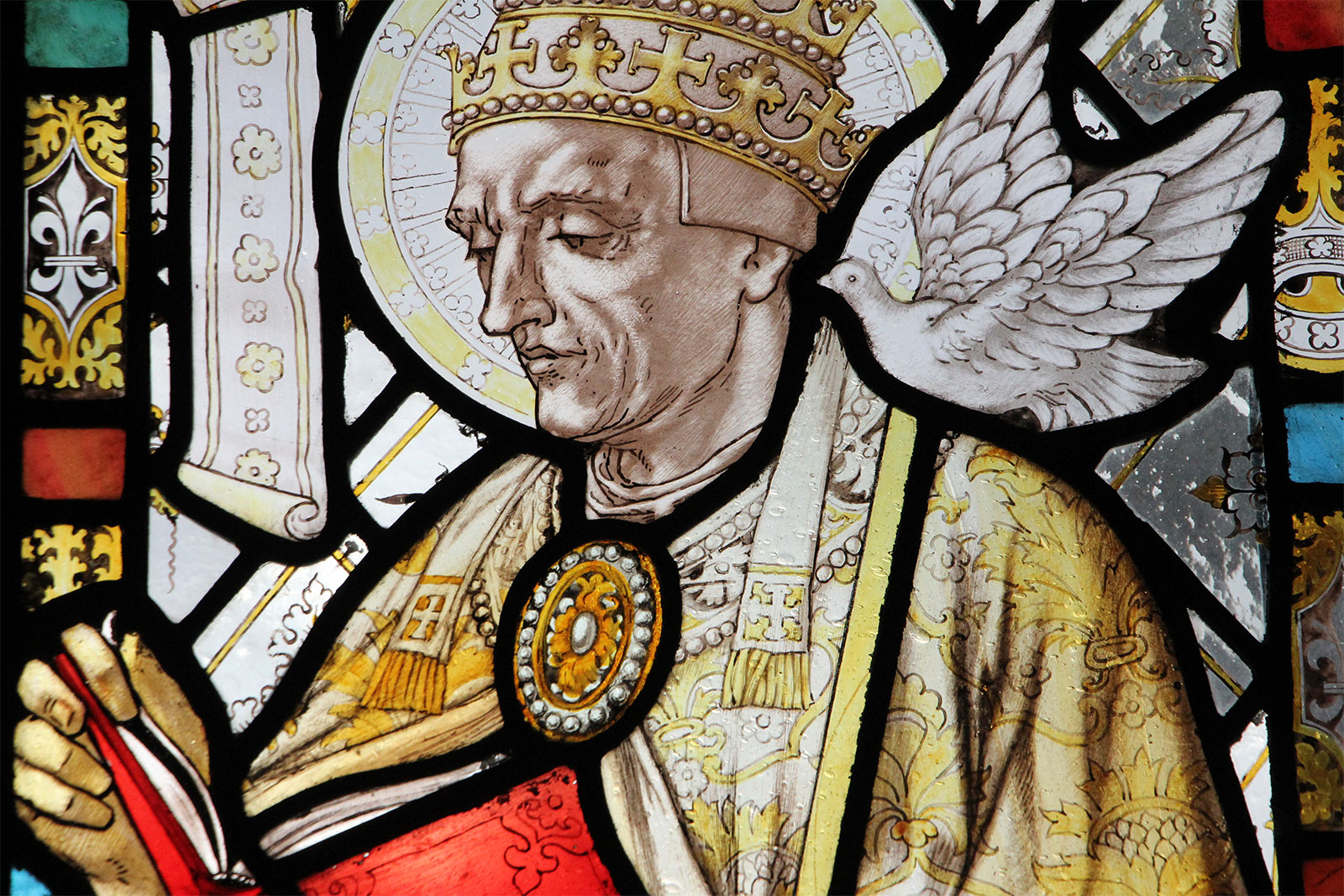– For the context of these translations click here –
Use and abuse of slaves as livestock
From Gregory himself we know that many bishops did not care for the oppressed or the poor. On the occasion of the appointment of the defensor romanus as rector, he wrote to the coloni of Syracuse:
I therefore recommend that you obey his orders with good spirit, which he considers appropriate for the furtherance of the interests of the Church. We have authorised him to severely punish anyone who dares to be disobedient or rebellious. We have also instructed him to resume the investigations on all slaves who belong to the Church but who have escaped and to recover with all prudence, energy and promptness the lands that someone illegally occupies.
For the cultivation of his lands it is natural that Gregory needed entire armies of slaves, of settlers tied to the ground. ‘Free ecclesial peasants were scarce’ (Gontard). The pope did not confront slavery. Where else could the ‘treasurer of the poor’ have obtained the money to meet his needs? Not to mention the maintenance of ‘jobs’, which in his time was the concern of any master. Gregory certainly reminds the lords—for his Church will have to do justice to the rich and the poor simultaneously, which is perhaps the greatest of all his miracles—that slaves are people and that they have been raised equal by nature to their masters. But although men have been created equal, absolutely equal, without a doubt that circumstances have completely changed. Then it would be necessary, according to Gregory himself, to admonish the slaves ‘so that at all times they consider the baseness of their state’ and that they ‘offend God, when with their presumptuous behaviour they contravene the order established by him’. Slaves, the holy father teaches, must ‘consider themselves as servants of the lords’, and lords as ‘fellow-servants among servants’. Beautiful expression!
Isn’t this a profitable religion? By nature, Gregory teaches that ‘all men are equal’ but a ‘mysterious disposition’ places ‘some below others’, creates the ‘diversity of states’, and of course as ‘a sequel to sin’. Conclusion: ‘Since each man does not walk in the same way through life, one has to dominate over others’. God and the Church—which in practice are always identified with the high clergy!—exists for the maintenance of slavery. And from Great Britain to Italy, passing through Gaul, there was in his time a constant trade in Christian slaves.
The Roman Church needed slaves, and the monasteries needed them. Gregory himself encouraged, through the Gallic rector Candide, the purchase of Anglic boy slaves for the Roman monasteries. Everyone bought and abused slaves as if they were cattle. And even to an enemy such as Agilulf, king of the Lombards, the pope could assure him that the labour of the forced ones would be beneficial to both parties. If the most unfortunate escaped their misery, which happened frequently enough, the holy father naturally pressed to be returned to their owners. He chased the escaped slave from a Roman monastery as well as the escaped baker from his brother. But then the pope was magnanimous and instead of punishing the crime of the coloni with the deprivation of his possessions, he wanted to see them punished with a beating by ‘duly returning the slaves to his friends’ (Richards).
Gregory, who insistently proclaimed the imminent end of the world, and who with the struggle for faith made this preaching the ‘guiding idea’ of his pontificate, still had time to do great business. And he made Saint Peter an increasingly wealthy character. He greatly increased the profits of his estate and laid the foundations for the decisive and victorious territorial rule of the papacy. With his Sicilian latifundia he supplied grain to Rome, paid the imperial troops of the Roman parts, took care of supplies and defence, and in times of crisis he even commanded the Roman garrison. In this way the ‘treasurer of the poor’, as he called himself, set in motion the evolution towards the State of the Church, with a hardly imaginable sequence of failures, wars and deceptions.

6 replies on “Christianity’s Criminal History, 138”
Excellent material. Thank you for publishing this!
The current ‘pope’ could learn a lot from Gregory
Gregory I and many of his successors—Gregory II, Gregory III, etcetera (my father admired Gregory VII)—relied on St Augustine’s theology about the Imperial Church. Francis I, on the other hand, relies on a more direct interpretation of Jesus’ words.
As a non-Christian I regard the Gregories and Francis as legit Christians, each cherry picking theological bits for the glory of their church.
Some of the early christian Bishoprics (diocese) in Ireland were not even run by religious leaders “but were run for their own benefit at great shame to god….” “The History of Ireland” by Martin Haverty 1882.
How many volumes have you translated so far?
It’s only excerpts of those volumes, not *all* the content of the volumes. Click on the hatnote of this post and you’ll see the first volumes which excerpts I’ve translated.